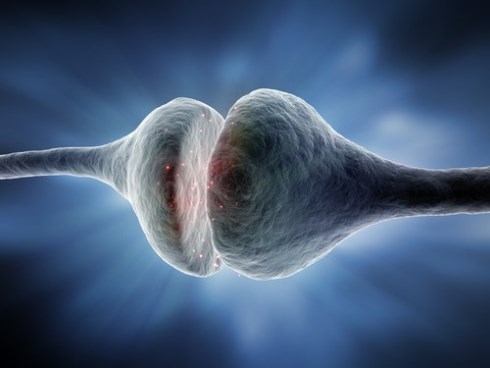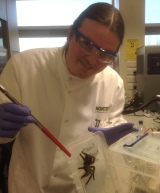Spotlight on: Pharmacology

The Biologist Vol 62(5) p32-33
Pharmacology studies how medicines and other drugs work and how they are processed by the body. Linking chemistry, physiology and pathology with many other disciplines, pharmacology is crucial in medicine and other life sciences.
Why is pharmacology important?
Drugs affect all of us in one way or another, through the medicines that we take, the problem of drugs in sport, the everyday consumption of alcohol and caffeine in drinks, environmental pollution and many other aspects of modern life. Pharmacology is vital for discovering new medicines to help fight common diseases such as cancer, depression and heart disease, as well as many other serious diseases. It is also essential for understanding the unwanted side effects of medicines, the reasons why individuals differ in the way they respond to drugs and why some drugs cause addiction.
Pharmacology improves the lives of millions of people across the world by providing vital answers at every stage of medicine discovery, testing and clinical use.
What types of career are available?
Pharmacologists make a unique contribution to today's science and tomorrow's medicines in universities, government agencies, the health service, and the pharmaceutical and biosciences industries. Pharmacologists carrying out research broadly work in one of three settings: academia, industry or healthcare.
Academic and industry pharmacologists conduct basic research in a lab into how drugs and medicines work, sometimes using animal models of disease. Clinical research pharmacologists help to translate basic pharmacological research into medicines ready for use. There is also a medical speciality called clinical pharmacology and therapeutics, which trains medical doctors to specialise in the safe and effective prescription and use of drugs.
Many pharmacologists go on to careers outside the lab, in fields such as scientific publishing, teaching, science communication, science policy and regulatory roles in the drug discovery industry.
How do I get into a pharmacology career?
Most pharmacologists will have started their career with an undergraduate degree in pharmacology or a related life science such as biochemistry or physiology.
Those who wish to continue in research, whether in an academic or industry setting, may also undertake postgraduate study at master's or PhD level, although some pharmacologists working in industry will be employed directly at graduate level. Many scientists come to the discipline of pharmacology from other, related fields.
To become a clinical pharmacologist in the health service, you will need to have studied for a medical degree before specialising in clinical pharmacology and therapeutics.
Where can I find out more?
The British Pharmacological Society is a member organisation for pharmacologists, and offers information and support about studying and working in pharmacology.
The Association of the British Pharmaceutical Industry has a range of careers information available, including case studies.
 Steve Trim
Steve Trim
Profession: Managing director, Venomtech
Qualifications: Genetics BSc, Aberystwyth
Interests: Venom biology, exotic pets, invertebrate physiology and anatomy, drug discovery
What does your company do?
As the name suggests, Venomtech produces venoms – mainly for drug discovery companies to develop into tools for research or therapeutics.
Why is venom so useful from a pharmacological perspective?
There are 15 drugs on the market that are venom-derived or 'peptomimetic' – that is, they have been created to function in the same way as an existing venom peptide. The main reason is that there has been selection pressure for millions of years on them hitting their targets. The fer-de-lance or pit viper's venom, for example, causes a catastrophic drop in blood pressure. However, it provided the basis for the development of ACE inhibitors, which have been very useful in the treatment of hypertension.
There is also a type of cone snail venom licensed to treat chronic pain. The snail has evolved the venom to inhibit fishes' motor signals and stop them swimming away, but it also appears to inhibit pain sensors in humans.
Every species' venom is different to some extent – sometimes it is just a single amino acid difference in the peptide sequence. So we are building a natural library of all these variations and mutations.
How many species of venomous animal are there?
Tens of millions, we think. There are 930 species of tarantulas alone, and 20,000 species of spiders, and almost all have venom. There are many scorpion species, and tens of thousands of venomous coral and jellyfish. Venomous and poisonous are very different, of course.
How did you get into working with venom?
My background is in genetics. I was a molecular biologist at Pfizer, and at very large companies you often end up doing what they need you to do, rather than what you came there to do. So I started to work less on molecular biology and more on biosafety, and became involved in purchasing venoms for a project. The big problem was that there weren't any obvious suppliers and the ones that did exist did not conform to EU regulations.
We first set up the company behind a pet shop and the first practical step was to apply the health and safety skills I had to develop safe methods of husbandry and venom collection. We now have a pharmaceutical grade laboratory where we have more than 100 different species of venomous invertebrate.
What does an average day involve now?
I don't really have an average day, but at some point I'll supervise some of the venom extractions, or do it myself if it is a particularly tricky one or a new species. We've just received some soft coral, which is a new one for me.
What do you enjoy most about pharmacology?
Being able to deliver tools for difficult drug targets that I know challenge many of my pharma colleagues is very rewarding. The driving force for me is the pharmacology of how these molecules have evolved and can be turned into useful drugs.


